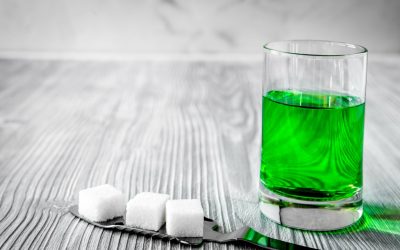A decline in personal hygiene is often a visible sign of drug use, marked by noticeable changes in appearance and self-care routines. Substance use can impair judgment and lower motivation, leading to neglected personal care habits 1. “Recognizing unusual body odors early can lead to timely intervention and effective addiction recovery.”
In fact, sometimes the word addiction is reserved for the most severe Halfway house cases. Because repeated use of a psychoactive substance often creates the motivation for further use, substance abuse is seen as a self-perpetuating disorder and considered to have a high potential for progression. Drug addiction, also referred to as substance use disorder (SUD), is a chronic disease characterized by the compulsive use of a substance despite harmful consequences. It affects both the brain and behavior, and over time, individuals lose control over their use of drugs.
How to Deal with Anger in Mental Health Treatment
Choosing the right addiction treatment ensures long-term recovery success. Despite the name, these are not bath products such as Epsom salts. Substituted cathinones can be eaten, snorted, inhaled or injected and are highly addictive. These drugs can cause severe intoxication, which results in dangerous health effects or even death.
Drug Addiction: Understanding the Patterns, Effects, and Treatment Options

Recognizing these symptoms early is crucial for timely intervention. Dental problems can cause not just physical discomfort but also affect recovery by disrupting nutrition, sleep, and self-esteem. Beyond oral health, drug use can harm the body’s internal systems, including the nervous system, leading to broader physical complications.
Symptoms of Drug Addiction
- Brown University Health, Rhode Island’s first health system, was founded in 1994 by Rhode Island Hospital and The Miriam Hospital.
- The relapse or recurrence of use process begins weeks or months before a person actually takes the substance.
- Recognizing addiction behavior involves identifying several key signs and symptoms.
- Addiction occurs once someone develops a tolerance and becomes dependent on a substance.
- Whether you are worried about yourself or someone close to you, knowing what to watch for can make all the difference.
- Knowing what withdrawal symptoms and overdose symptoms look like may save your loved one’s life.
SUD is a health condition that leads to a strong desire to use a substance even though it may have adverse effects on a person’s life. People with SUD may use illegal or legal drugs, including prescription medications. Some people may use substances to help them cope with the symptoms of their mental health condition. SUD is a condition that involves a person’s misuse of substances, such as alcohol or drugs, even though the person may continue to experience unwanted harmful effects. Substance use disorder (SUD) affects a person’s ability to control their use of alcohol or drugs.
- People developing problem use might look for socially acceptable reasons to have a drink, or they might start concealing their alcohol consumption from others around them.
- Changes in mental and physical stimulation, altered perception of sound, light, touch.
- They may have difficulty completing simple tasks, display a lack of interest in life or a sense of hopelessness.
- From intensive outpatient programs to tailored therapy options, there are many paths to recovery.
Recognizing the physical signs of drug use is just the beginning – what comes next is equally important. The twelve signs we’ve discussed, from changes in the eyes to muscle weakness, emphasize how early detection can lead to better outcomes. Managing heart-related symptoms from drug use requires specialized care that combines immediate medical treatment with long-term recovery strategies. Drug use can lead to both immediate and long-term heart problems, often serving as warning signs of substance use.
Why Developing New Routines is Essential in Recovery
Most people who develop substance use disorder do so for a combination of reasons, including genetics and environmental factors. People with substance use disorder struggle to stop using the substance and often experience painful physical or psychological symptoms when they try to. By Sarah Bence, OTR/LBence is an occupational therapist with a range of work experience in mental healthcare settings. When someone begins using drugs of any kind, they may start feeling as if they need larger and more frequent doses to get the same effects, even with something that started as social experimentation.
Are There Cultural Differences In The Perception And Treatment Of Drug Addiction?
As a person becomes dependent on the substance, the substance will begin to control the person’s life. This shift in brain chemistry makes it increasingly difficult for the individual to feel pleasure from ordinary activities (like eating, socializing, or engaging in hobbies). The result is that the person becomes fixated on obtaining and using the drug, leading to a cycle of compulsive behavior.

What Are Opiates? Structure, Uses, Addiction & Importance in Ohio
Signs of decline include lower grades or work quality, frequent problems, and attendance issues. These signs suggest drug or alcohol influence, impairing cognitive abilities and productivity. Moreover, people under the influence of drugs may experience a decreased participation in activities they once found pleasurable. They may show a lack of interest, motivation, and enthusiasm for these activities that used to bring them joy. In addition, substance use can strain relationships with family, friends, and romantic partners. Those using drugs may become unreliable, frequently cancel plans or show up late.
What Are The Different Types Of Drug Addiction?

Additionally, data from 1999 to 2022 reveals that around 294,000 people lost their lives due to overdoses linked to prescription opioids. Drug addiction is a pervasive and devastating condition that affects millions of people worldwide. It involves the compulsive use of substances despite the negative consequences they symptoms of drug use bring, altering the brain’s chemistry and leading to physical and psychological dependence. This article aims to provide an in-depth look at the symptoms of drug addiction, the underlying causes, and the ways addiction affects individuals and their loved ones.

